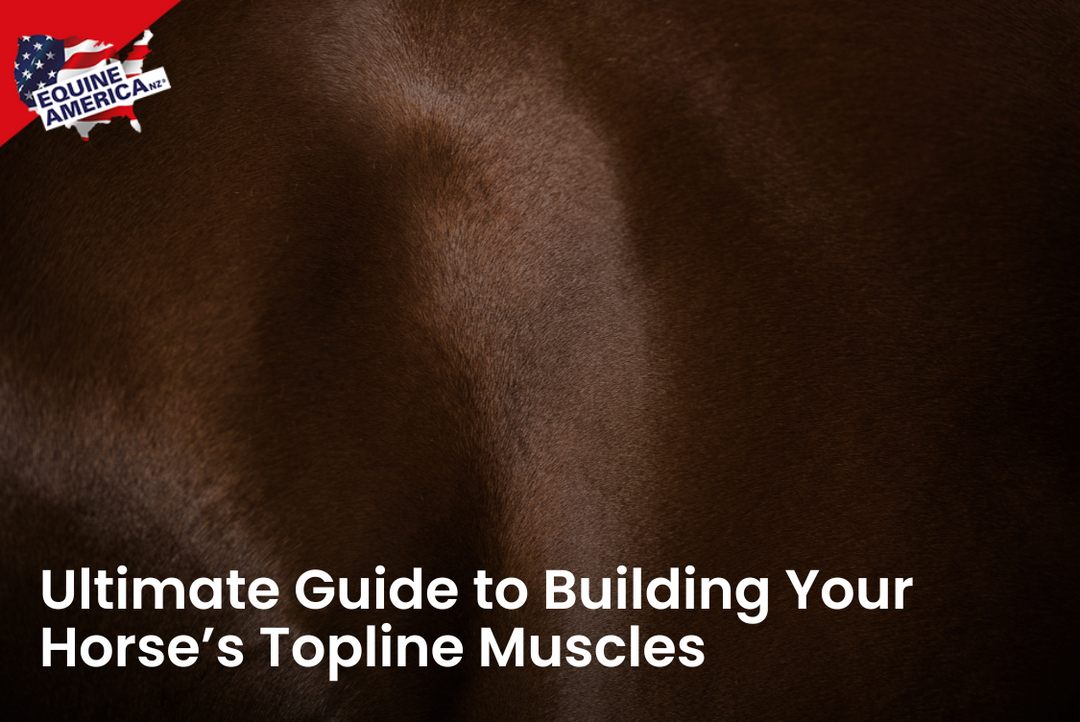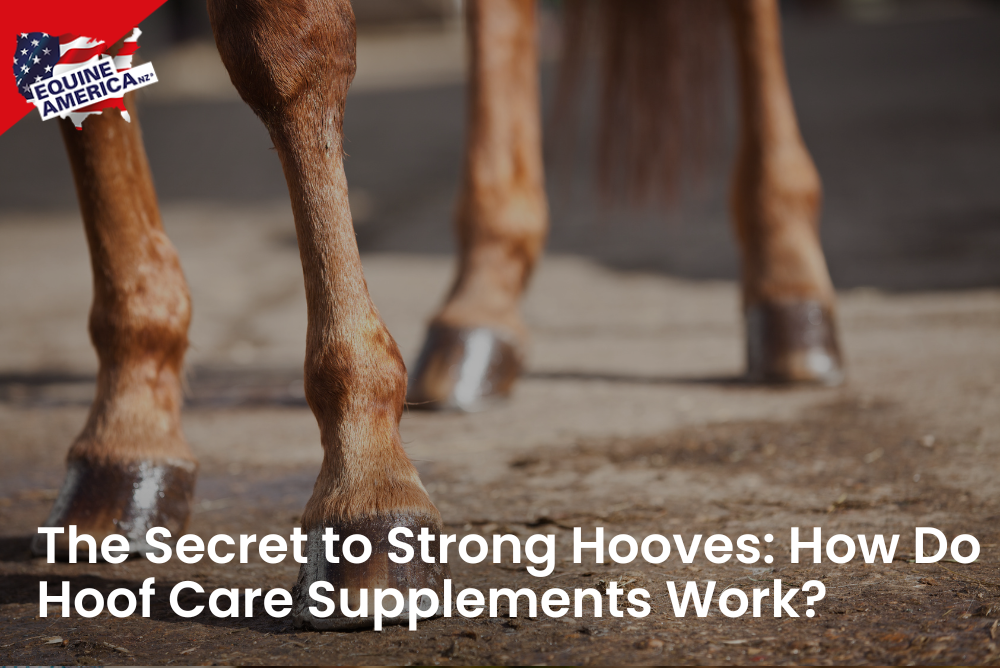The well-being of your equine companion hinges on a well-functioning digestive system. Just like in humans, digestion in horses is the cornerstone of overall health and performance. From absorbing essential nutrients to maintaining a proper weight and even influencing behaviour, digestion plays a pivotal role in your horse's daily life.
In this comprehensive guide, we will explore the intricacies of equine digestion, understand the signs of digestive issues, and discover a range of strategies and practices to enhance your horse's digestion.
The Complexity of Equine Digestion
To truly appreciate the significance of digestive health, let's take a peek into the horse's complex digestive system. Horses are natural grazers, evolved to consume small amounts of fibrous food consistently throughout the day. This herbivorous diet is processed through a sophisticated digestive tract, starting with the mouth and ending at the large intestine.
One of the most fascinating aspects of equine digestion is the cecum, a pouch-like structure that houses a multitude of beneficial microorganisms. These microbes play a pivotal role in breaking down fibrous plant materials, enabling the horse to extract nutrients from even the toughest forage.
The Gut Microbiome
At the heart of this digestive orchestra lies the gut microbiome – a diverse community of bacteria and microorganisms. This microbial ecosystem aids in the fermentation of fibrous materials, helping the horse extract energy and vital nutrients from its food.
Understanding the importance of these microbes is crucial because they can be affected by changes in diet, stress, or medications. Maintaining a healthy gut microbiome is a key factor in ensuring your horse's digestion operates smoothly.
Signs of Digestive Issues
Horses are masters at hiding discomfort, but they do give us signals when something's amiss in their digestive system. It's essential to be vigilant and observe your horse closely for these common signs of digestive problems:
- Change in Appetite: A sudden loss of interest in food or an increased appetite can indicate digestive discomfort.
- Colic Symptoms: Rolling, pawing, or frequent lying down could signal colic, a severe digestive issue.
- Weight Loss: Unexplained weight loss or difficulty maintaining a healthy weight is a concerning sign.
- Diarrhoea or Constipation: Changes in faecal consistency or frequency can indicate digestive problems.
- Behavioural Changes: Irritability, lethargy, or a decrease in performance may be linked to digestive discomfort.
Impact on Behavior and Performance
It's important to note that digestive issues don't just affect your horse's physical health; they can influence behaviour and performance too. A horse dealing with digestive discomfort may become grumpy, less willing to work, or even show signs of aggression. Understanding the link between digestive health and behaviour is vital for both the horse's well-being and your safety as a rider or handler.
In the next sections, we will delve into the practices and strategies you can employ to support and enhance your horse's digestive health.
The Foundation of Good Digestion
Anchoring your horse's digestive health is a well-balanced diet. Providing high-quality forage, such as grass and hay, is fundamental. Forage not only meets your horse's nutritional needs but also encourages natural chewing and saliva production, which are crucial for digestive efficiency.
Protein, Fiber, and Beyond
Beyond forage, pay attention to the specific nutrients that contribute to digestive health. Protein is essential for tissue repair and growth, including the maintenance of the digestive tract lining. Fibre, found in forage, supports healthy gut motility and fermentation in the cecum and colon.
Consider adding prebiotics and probiotics to your horse's diet. Prebiotics, such as fructooligosaccharides (FOS), provide nourishment to beneficial gut microbes, while probiotics introduce friendly bacteria to the digestive system.
In the following sections, we'll explore more aspects of your horse's care that can significantly impact their digestion.
Feeding Strategies
Meal timing and portion sizes are critical components of equine nutrition. Horses are designed to graze throughout the day, so it's ideal to mimic this natural behaviour. If possible, divide your horse's daily food intake into multiple smaller meals. This approach prevents overloading the digestive system, ensuring a steady release of nutrients.

Avoiding Overfeeding
While it's essential to meet your horse's nutritional requirements, overfeeding can be detrimental to digestion. Excess food can overwhelm the digestive tract and lead to problems like colic or laminitis. Always consult with your veterinarian or equine nutritionist to determine the appropriate portion sizes for your horse's age, weight, and activity level.
The Connection Between Water and Digestion
Water is often an underestimated aspect of digestion. Without adequate hydration, digestion can slow down, leading to impactions or colic. Ensure your horse has access to clean, fresh water at all times. During hot weather or periods of increased activity, your horse may need more water than usual.
Signs of Dehydration
Keep an eye out for signs of dehydration, such as dry, tacky gums, dark urine, or reduced skin elasticity. If you suspect your horse is not drinking enough, consult your veterinarian.
Healthy Teeth, Happy Digestion
Dental health is intimately linked to digestion. Horses need proper dental care to maintain an effective grinding motion when chewing, which aids in breaking down food for digestion. Schedule regular dental check-ups to ensure your horse's teeth are in good condition.
The Parasite Challenge
Internal parasites can wreak havoc on your horse's digestive system. Worms and other parasites can damage the digestive tract, leading to weight loss, colic, and even more severe health issues.
Effective Parasite Management
Implement a strategic deworming program based on your horse's age, living conditions, and local parasite prevalence. Regular faecal egg counts can help determine the most appropriate deworming schedule.
Exercise and Gut Health
Physical activity plays a dual role in promoting digestive health. It stimulates gut motility, aiding in the passage of food through the digestive tract. Additionally, exercise helps maintain a healthy body weight, reducing the risk of obesity-related digestive issues.
Balancing Rest and Activity
While exercise is beneficial, it's essential to strike a balance between rest and activity. Overexertion can lead to stress and potentially contribute to digestive problems. Ensure your horse gets enough turnout and relaxation time.
Stress and Digestion
Stress and anxiety can wreak havoc on your horse's digestive system. These emotions trigger the release of stress hormones, which can slow digestion and lead to problems like colic or ulcers.
Creating a Stress-Free Environment
Minimise stressors in your horse's environment. Provide companionship, maintain a consistent routine, and offer plenty of turnout time. If your horse is prone to stress during activities like trailer loading or vet visits, invest time in desensitisation and positive reinforcement training.
Final Thoughts
Enhancing your horse's digestion is not only about ensuring their physical health but also about nurturing their overall well-being. A well-fed, comfortable, and content horse is more likely to excel in their tasks, whether that's competing, trail riding, or simply being a cherished
If you’re looking for high-quality horse supplements, consider exploring the range of products offered by us here at Equine America NZ. Our extensive selection of products along with performance-enhancing supplements provide you with suitable options to support your horse’s overall health and performance.
Please give us a call at Equine America NZ today at 0800 440 888 to learn more or leave an enquiry.




